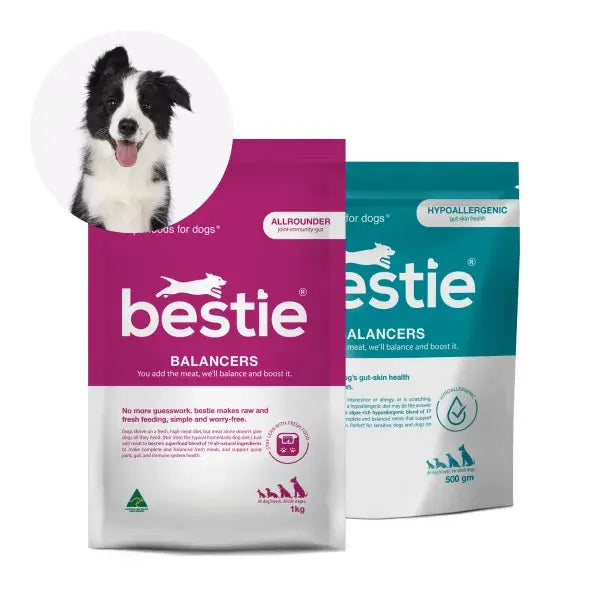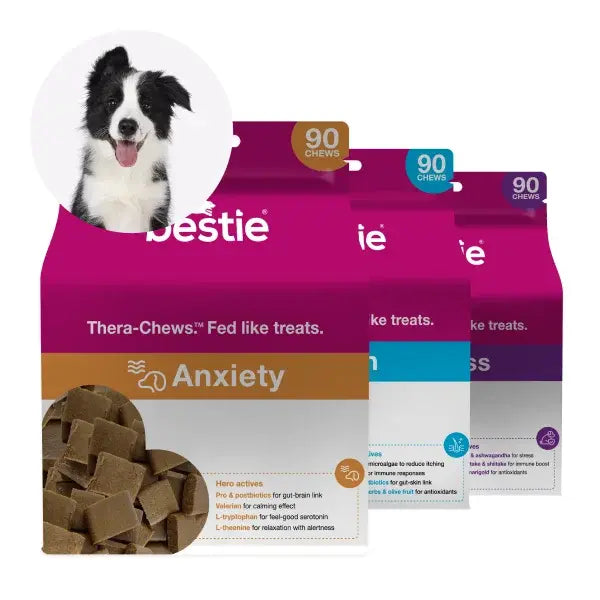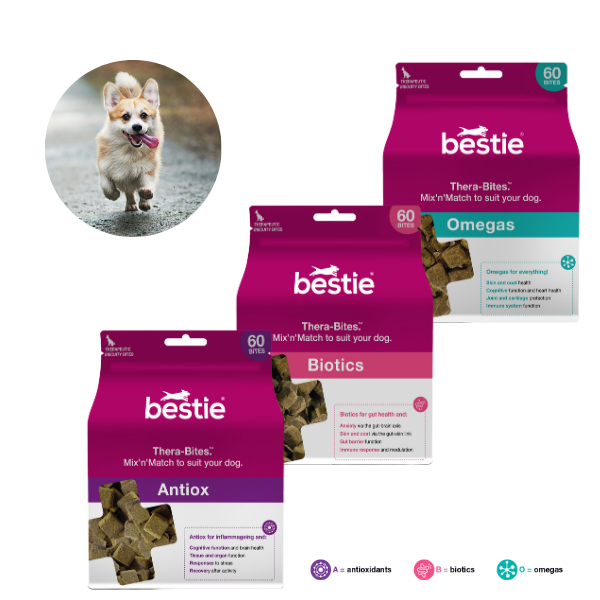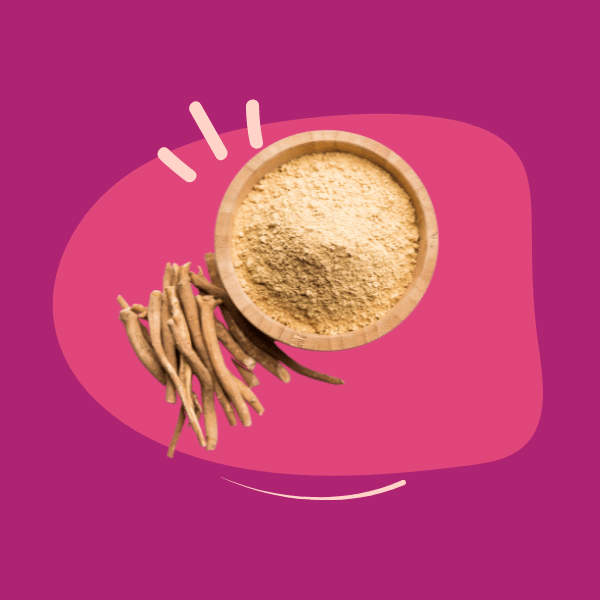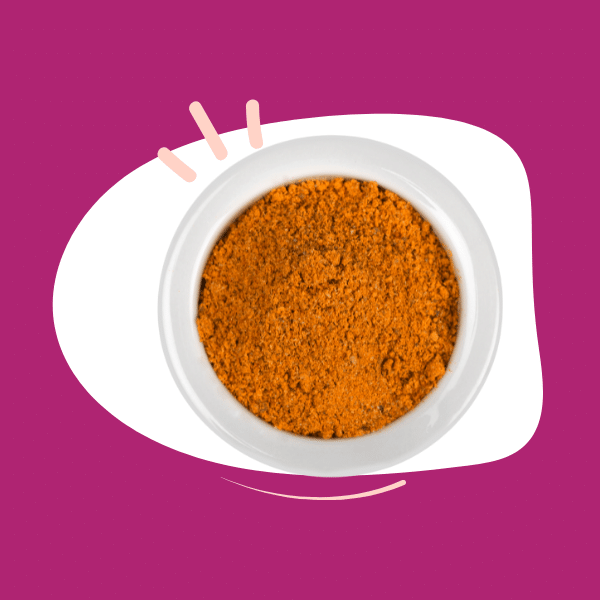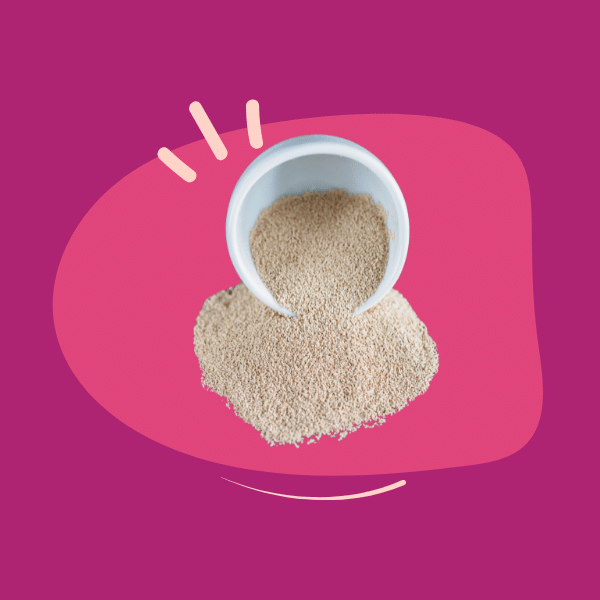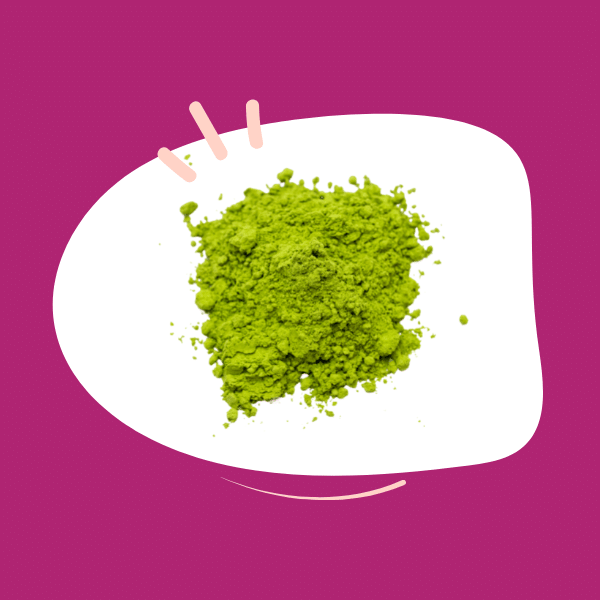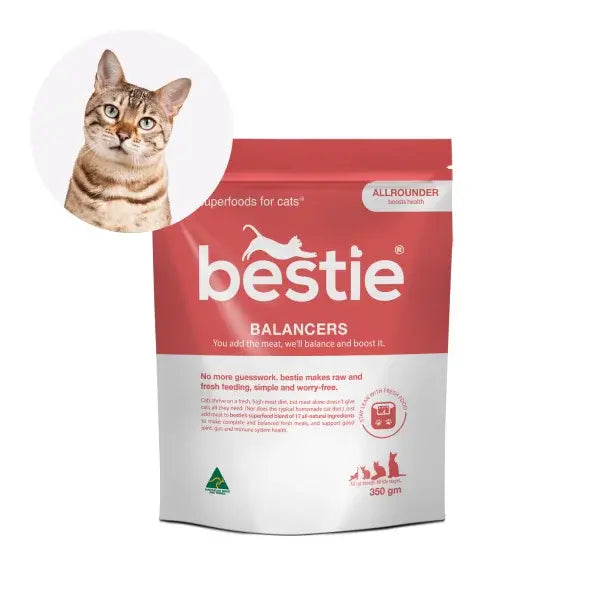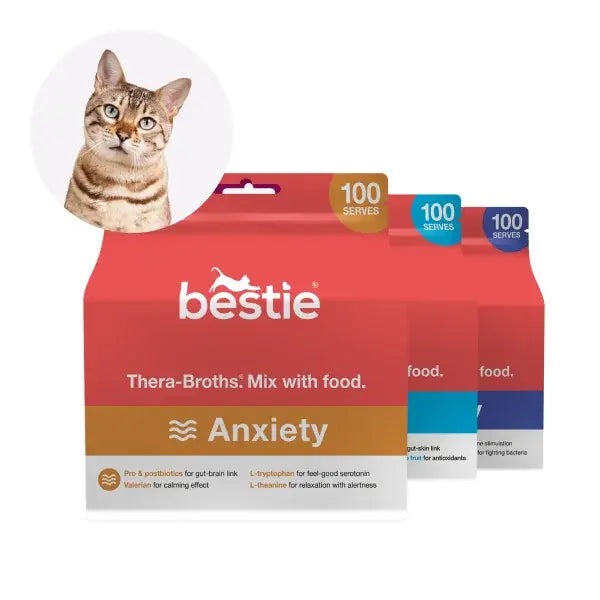In this episode of the Pet Nutrition Show with Amanda and Dr. Anna, the focus is on bladder health and urinary stones in pets.
We discuss why dog urine can burn grass and offer solutions like increasing water intake and dietary adjustments. We also dive deep into the different types of urinary stones, their causes, and how diet influences their formation.
The episode covers specific strategies for managing struvite and calcium oxalate stones, the importance of water intake, and emerging research on probiotics and plant extracts for urinary health. A home food hack is shared for encouraging pets to drink more water.
00:00 Introduction to the Pet Nutrition Show
00:28 Why Does Dog Urine Burn Grass?
01:33 Solutions for Preventing Grass Burn
02:44 Understanding Urinary Health in Pets
03:47 Dietary Impact on Calcium Oxalate Stones
05:13 Dietary Impact on Struvite Stones
06:01 Adjusting Diet for Optimal Urinary pH
07:51 The Role of Water in Preventing Stones
08:55 New Frontiers in Nutritional Support
12:25 Breed Susceptibility and Symptoms
14:07 Therapeutic Diets: Risks and Management
16:34 Home Food Hacks for Better Hydration
You can also listen on Spotify or Apple.
Have a listen to the show, but if you’re more of a reader, here's the transcript:
(This transcript is automatically generated and has not been edited for typos.)
[00:00:00] INTRO: This is the Pet Nutrition Show with Amanda and Dr. Anna.
[00:00:06] AMANDA: Welcome to the Pet Nutrition Show. We're here for another episode of our deep dive clinical nutrition series. And this week we're effectively talking bladder health and urinary stones more specifically. But before we do, I'm with Dr. Anna. And the question I often get, and in fact this used to happen to us all of the time.
[00:00:28] AMANDA: So, What happens when your dog's wee burns that brown circle in your grass? What can you do about that? Why is it happening?
[00:00:36] INTRO: Pet Q& A, where we answer what you're wondering about food, moods, and poos.
[00:00:44] ANNA: Oh, it's such a pain, isn't it? And we've always struggled with this. So basically, the dog's urine Is burning the grass because of its high nitrogen content and its pH.
[00:00:55] ANNA: So an anecdote, I don't know if you've ever noticed, it seems to be more of a thing [00:01:00] with female dogs than male dogs, but some male dogs also, also burn the grass.
[00:01:05] AMANDA: Outboy dogs used to burn the grass all the time. And before you go on, I'm wondering, do cats burn the grass as well?
[00:01:15] ANNA: They probably do. Because their urines are closer to about six point.
[00:01:19] ANNA: 6. 4, 6. 5, but then I don't often see cats weeing on the grass, which is probably why I don't see, you know, they usually go behind something.
[00:01:28] AMANDA: Ha
[00:01:28] ANNA: ha ha, sneaky little buggers
[00:01:31] AMANDA: that they are. Okay, so what can you do about it?
[00:01:35] ANNA: Anyway, so there's a few things you can do. First of all, If you try and dilute the urine, there's one thing you can do.
[00:01:40] ANNA: So get them to increase their water intake, and we'll talk about, know that in the food hack. When they wee, if you put extra water on the lawn, that can help as well. And then in terms of other things, Well, dietary adjustments are one. So you can look for different diets to change the pH of the urine. [00:02:00] The other thing that's on the market is you can get these special lawn repair products from places like Bunnings and so forth.
[00:02:08] ANNA: And my favorite that didn't work for you, but it does seem to work on my dogs is these dog rocks. And essentially they're supposed to reduce the nitrogen in urine. I don't exactly know how they do that, uh, but they definitely seem to work. Okay.
[00:02:24] AMANDA: Well, that's good. I'm glad that's been your experience.
[00:02:28] ANNA: But look, if you're still getting a problem, if they don't work, you probably got to look at dietary adjustments and there's things you can do to your diet, or you can choose other diets that will change the pH of your dog's urine to make it a bit more neutral.
[00:02:41] ANNA: And that almost certainly will help.
[00:02:43] AMANDA: Excellent. Well, let's talk a little bit more about the urinary. health issue itself. So are all urinary problems, urinary stones? Is that what's going on?
[00:02:58] ANNA: Oh no, there's lots [00:03:00] of, you can have infections, you can have all sorts of things go wrong in the, in the urinary sort of system.
[00:03:07] ANNA: But in terms of urinary stones, It's a big thing. It affects about 3 percent of dogs and cats at some time, some point during their lifetime. So it's not insignificant. And when you come to Uranus stones, it's not particularly straightforward because there are about five types of them. And the way you deal with them, yeah, and the way you deal with them can be quite different as well.
[00:03:32] ANNA: But the good news is, out of those five types, two of them, struvites and calcium oxalate stones, account for about 80 90 percent of all stones in dogs and cats, so at least that's something.
[00:03:47] AMANDA: So let's take calcium oxalate stones. That's actually one I have heard of. So how can diet help with that?
[00:03:54] ANNA: So calcium oxalate stones are really formed [00:04:00] when you get excessive calcium in the diet, low magnesium and excessive vitamin D, as well as a high oxalate.
[00:04:08] ANNA: intake. So that can be typically coming in, for example, through legume type diets is, is where you can get higher oxalates. And then the calcium comes in often through diets that have what I call very bioavailable calcium added like calcium sulfate. And essentially what, what happens is the calcium and the Oxalates bind together in certain conditions, and that causes the stones.
[00:04:34] ANNA: Um, so that's why the diet's impacting it. And then the, then vitamin, high levels of vitamin D compound all this, because it increases calcium uptake. So, it's a tricky one.
[00:04:49] AMANDA: So don't spend too much time in the sun.
[00:04:52] ANNA: Well, I remember that cats and dogs actually don't absorb vitamin D from the sun very well because of their skin, because of their coats.[00:05:00]
[00:05:00] AMANDA: But yes. Forget what I said, everybody. Forget what I said.
[00:05:04] ANNA: No, not at all. Oh, dear. Sometimes supplements can throw things out as well, by the way, inadvertently.
[00:05:13] AMANDA: And then with the other common one, which are the struvite stones, what are the dietary components that should be limited or avoided to prevent those ones?
[00:05:22] ANNA: Well, struvites are sort of the opposite, really. So, So diets to high in magnesium as opposed to low in magnesium, high in ammonium and high in phosphate all promote this struvite stone formation, especially if you get a urinary tract infections that ends up making the pH, uh, more alkali. And, and that's the conditions you need for these particular stones to form.
[00:05:48] ANNA: They form in, in alkali urine and the, whereas the other ones tend to form in more acidic urine. So again, diet, diet key here and totally different to the [00:06:00] calcium oxalate case.
[00:06:01] AMANDA: Okay, and so you've mentioned urinary pH a few times. So what's going on? How does that affect the stone formation and how can you adjust the diet to have an optimal pH?
[00:06:13] ANNA: Yeah, this is really interesting, this bit. So urinary pH plays a really important role in this formation of stones because it affects basically how the various crystals bind together. So it's a. Two key points really to remember is that struvite stones tend to form in alkali urine, so pH greater than 7, whilst the calcium oxalate stones form in the acidic type urine, so pH of around 6.
[00:06:42] ANNA: 5. And so what this means is you can then manipulate the diet, uh, to manipulate urine root pH to help either prevent or, or reduce the [00:07:00] risk of reoccurrence of these stones. So, so that's why when you're looking for urinary diets as well, you'll see two types and it's important that you choose the right diet type for your stone.
[00:07:12] ANNA: And for that, you really need to go and see your vet because they'll do all the proper checks to work out which it is.
[00:07:19] AMANDA: What about though, if you're not feeding a commercial diet and you're feeding a homemade diet, what are you going to do there?
[00:07:24] ANNA: Yeah, you can actually, you can absolutely use a homemade diet, but because again, the type of diet will depend on what type of stone, uh, it really, this one would need to be formulated by a nutritionist because you have to balance the anions and the cations in these diets to get the urinary pH right.
[00:07:46] ANNA: So it's naturally not super easy, but definitely can be done. It's just more work.
[00:07:51] AMANDA: And water plays a role here, doesn't it? What, what is that
[00:07:55] ANNA: role? Absolutely. And there was a bit of a saying on this course, [00:08:00] dilution, dilution, dilution. So water intake is one of the keystones in strategies to prevent and even and treat these stones.
[00:08:10] ANNA: So basically you want to encourage water intake. So, because it dilutes the urine essentially and reduces the concentrations of minerals so they're less likely to bind together. So, so things you can do is, um, add kind of flavors if you like to the water broth. Um, you can use wet food instead of the kibble.
[00:08:32] ANNA: You can use home cooked food, which is great in this regard because it's usually, uh, high moisture. And in terms of commercial diets, what they often do is add a little bit more salt to promote drinking as well, we call it, uh, and, and diuresis, which is the posh word for saying. Making, making animal. We more
[00:08:55] AMANDA: Now, is there anything new on the horizon or, or what's the sort of new [00:09:00] frontier of nutritional support for this condition?
[00:09:04] ANNA: Yeah, there's a few things. I mean, studies on, on diets have been going on for quite a while, but something new research is looking. probiotics in preventing urinary tract infections, um, the use of specific amino acids and plant extracts to reduce oxalate absorption, for example, for those calcium oxalate stones.
[00:09:23] ANNA: And then also come some work trying to make these high moisture diets really palatable, although to be honest, most high moisture diets are more palatable. Often a bit more palatable than dry diets.
[00:09:36] AMANDA: Let's, let's talk a couple of specifics there. So, just in terms of how probiotics might be assisting this, what is, what's the mechanism there?
[00:09:46] AMANDA: And is it just any old probiotic or specific ones?
[00:09:50] ANNA: Well, it seems to be balancing the microflora through not only the gut, but, uh, but the, the whole [00:10:00] system, if you like. Uh, in terms of the specific trains, they seem to be quite specific. So lactobacillus, uh, acidophilus is one strain, and then lactobacillus ramus is another, as well as the bacterium bifidum strain.
[00:10:17] ANNA: So these are the, the key key probiotics in this area, and they seem to be actually quite good at inhibiting the growth of harmful bacteria in the, in the urinary tract. And this is what's. proposed to be the major mechanism for reducing infection and stone formation.
[00:10:37] AMANDA: And then when we're looking at, um, plant extracts that can help with urinary health, cranberry is one that's often talked about, isn't it?
[00:10:45] ANNA: Yeah, it is and it works. Look, or at least there's, you know, certainly supporting data for it. So it basically helps inhibit the adhesion of bacteria to the bladder wall and that's how it reduces the, the risk of infections. [00:11:00] Which are often linked with tickly struvites. But you've got others as well. So I think it's called Chancre Piedra.
[00:11:08] ANNA: Sometimes it's called Stone Breaker. And this is sort of a herb. This is a traditional herb and it was always used traditionally to dissolve kidney stones in humans and prevent the formation. Look, I've not seen a huge amount in, in cats and dogs, I have to say, but it's certainly there. And then you get things like horsetail, which is diuretic.
[00:11:26] ANNA: And that helps again with this diuresis to help flush things out. So definitely plant extracts are worth a look. And there are lots of other ones as well. I just don't, just don't know their names offhand. I'm afraid, Amanda.
[00:11:41] AMANDA: I don't think you can go past Stonebreaker. I know, it's a classic, isn't it? It's like something out of a Marvel comic, aren't it?
[00:11:48] ANNA: That's right, that's right. That's right. But there's also other things you can do. Like, uh, there's some work looking at, you know, playing around with specific amino acids. And this is outside adjusting things like methionine for [00:12:00] cation, aniline, anion. anion balance. So things like taurine can help maintain normal UTI, uh, urinary tract function and also seems to help reduce the risk of stone formation.
[00:12:13] ANNA: That's probably through acidification, I suspect. Glycine's another one that binds oxalate, so reduces absorption. So, you know, there's, there's definitely stuff out there.
[00:12:25] AMANDA: And does it tend to happen to specific breeds of dogs and cats, or is it just kind of generally spread across the dog and cat?
[00:12:32] AMANDA: population.
[00:12:33] ANNA: Oh, there's certainly certain breeds are more susceptible. So in the dogs, the miniature schnauzers, I think are one of those specific types of dogs that are particularly prone. Siamese and Burmese cats are another one. They're Sickly susceptible to calcium oxalate stones. Dalmatians again on the dog side, they tend to be prone to urate stones.
[00:12:56] ANNA: I haven't talked about here, but another type of stone, [00:13:00] and that's due to a genetic defect in purine metabolism. So they have to have special diets often. And then the, The Shih Tzus as well, the little ones, they tend to have a higher incidence of calcium oxalate stones. And then on the Struvites, um, I think, uh, I always get this right.
[00:13:18] ANNA: I might got this right way around. I think it's females. Dogs tend to have a, a higher prevalence, but I may well have that the wrong way around, Amanda.
[00:13:28] AMANDA: We will check on that one. And so how will you know that this is going on with your dog or your cat? What are the symptoms?
[00:13:36] ANNA: Yeah, it's a little bit, um, it's, you know, often they'll have abdominal pain, they'll crouch, they'll try and strain to go to the toilet, they'll just be uncomfortable, and they'll have general malaise and lethargy, so fairly, fairly vague.
[00:13:51] ANNA: Unless they're in severe pain in which you'll, you'll really see them in pain.
[00:13:56] AMANDA: So let's say you've, um, you've noticed something, you've been to the vet, you've [00:14:00] had this diagnosed and you've decided to go on onto a therapeutic urinary diet, so a commercially formulated one. Are there some risks or downsides with long term use of, of a therapeutic diet?
[00:14:13] AMANDA: Because it's a condition that may not resolve itself, right? It's one that just gets managed.
[00:14:19] ANNA: Yeah, well Um, in terms of Yeah, you've got therapeutic diets for dealing with it and it depends on the type of stone to, to whether the diet itself can, can deal with the stone or it needs to be surgically removed, like in the case of struvites, or its management.
[00:14:36] ANNA: And because these diets are formulated to achieve specific things, there are a few risk factors, if you like, for, for long term use. So. So some diets, for example, are restricted in nutrients, which long term, such as minerals, certain minerals, which could result in deficiency long term, so magnesium is an example there.
[00:14:57] ANNA: And then conversely, some have [00:15:00] excessive nutrients to promote water intake, for example. So the other one is potentially altered metabolic functions. With, uh, therapeutic diets, you're trying to alter the urinary pH, and one of the side effects potentially can be altered pH levels on a metabolic level. So metabolic acidosis or alkalosis, for example, and that can impact organs.
[00:15:27] ANNA: And then other ones are because they're often have higher levels of salt. For example, to drive first. Well, that can be an issue for kids, for kids, for cats and dogs issues. Uh, potentially it can certainly in older pets. So there's a few, there's a few drawbacks as well.
[00:15:46] AMANDA: And, uh, other health issues might emerge.
[00:15:50] AMANDA: Like obesity, for instance.
[00:15:53] ANNA: Yeah. I mean, it depends very much on the, on the diet, but some of the therapeutic diets can be quite high in [00:16:00] calories to get the balances for the urinary pH, right? So that can lead to obesity if, if overfed. GI issues can sometimes happen due to diet composition. And sometimes a dog or cat just doesn't like it and won't eat it, in which case you can get weight loss as well.
[00:16:17] ANNA: So, psych everything.
[00:16:19] AMANDA: Alright, well, that is an awesome summary of, of the territory of urinary stones. Certainly, that was a bit of an education for me. And now it is time for a wee related food hack.
[00:16:34] ANNA: It's time for Home Food Hacks with Dr. Anna. Oh yes, this one was an easy one.
[00:16:39] AMANDA: How do you get your dog or cat to drink a little bit
[00:16:44] ANNA: more?
[00:16:44] ANNA: Well, actually I do do this in the summer, right, because my, my boy dog drinks a lot, but the girl dog, you know, doesn't. So, that sounds bad, there's in water that, not alcohol. So, so what [00:17:00] you can do is if you save the The juices from either from when you cook your vegetables, if you boil them, or you know when you make a roast or you make a stew and there's some of the juice left over, just save a little bit and just add a couple of teaspoons or a teaspoon to their water bowl and they absolutely go nuts for it.
[00:17:19] ANNA: They love it. You can also add like a teaspoon of yogurt if you wanted or sometimes in summer I'll just put a tiny little bit of fruit juice in there. Not too much, just a little bit. And it really gets them interested in lapping it all up.
[00:17:35] AMANDA: Wow, that's super simple. Thank you very much for that, Anna. Well, I hope that you have enjoyed this episode of the Pet Nutrition Show.
[00:17:44] AMANDA: We've loved having you here and we would love to hear what you think. So, if you've got a review or a question, please leave that on any of our podcast channels. And we hope to see you next time for the Pet Nutrition Show. [00:18:00]
[00:18:00] INTRO: The Pet Nutrition Show is proudly presented by Planet A Pet Food, bringing dogs a flexitarian diet that's good for them and the planet.


